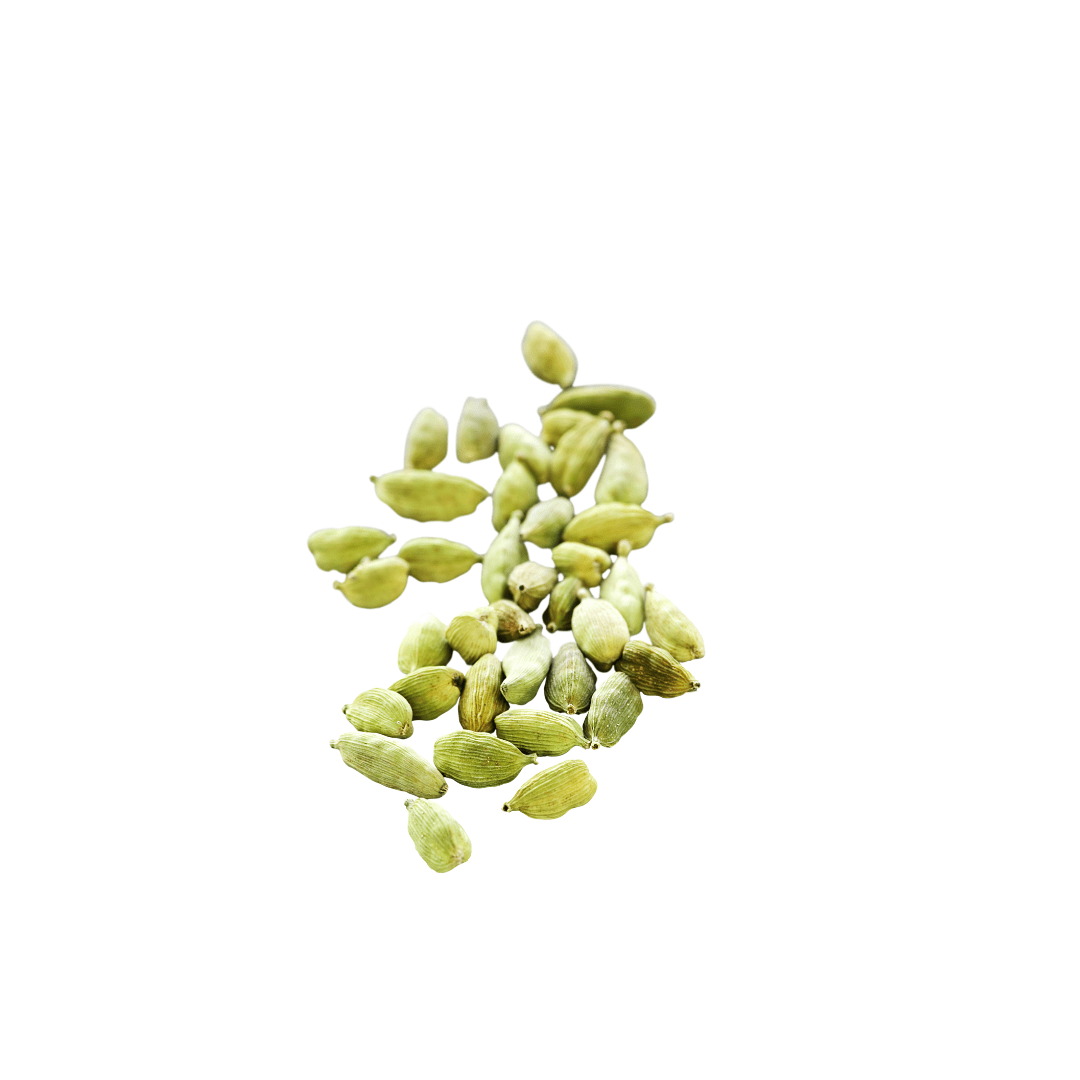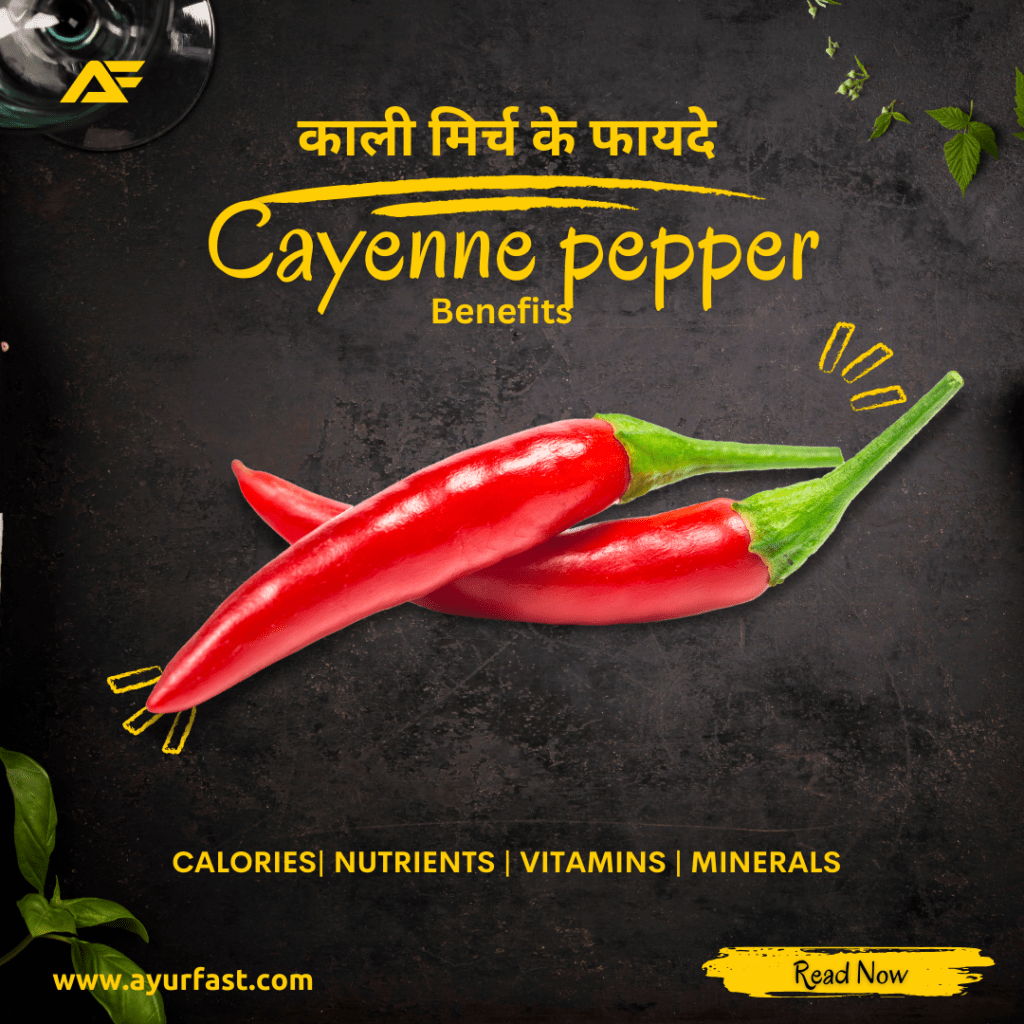About
Cardamom is a spice commonly used in cooking and baking, particularly in Indian, Middle Eastern, and Scandinavian cuisine. It comes from the seeds of a plant in the ginger family, and it has a strong, unique flavor and aroma.
Health benefits of cardamom:
-
Improves digestion: Cardamom contains essential oils that help stimulate the digestive system, promoting healthy digestion and preventing gastrointestinal issues like bloating, constipation, and nausea.
-
Lowers blood pressure: The antioxidants in cardamom can help lower blood pressure levels, which reduces the risk of cardiovascular disease.
-
Boosts immunity: Cardamom contains vitamins and minerals that help boost the immune system, protecting the body against infections and diseases.
-
Anti-inflammatory properties: Cardamom has anti-inflammatory properties, which can help reduce inflammation in the body and alleviate pain.
-
Antimicrobial effects: Cardamom has antimicrobial effects, which can help kill harmful bacteria and viruses in the body.
-
Improves oral health: The antimicrobial effects of cardamom can also help improve oral health by reducing the risk of infections and preventing bad breath.
-
Enhances mood: Cardamom contains essential oils that can help enhance mood and reduce stress and anxiety.
Diseases that can be cured or managed by cardamom:
- Digestive issues like bloating, constipation, and indigestion
- High blood pressure and cardiovascular disease
- Inflammation and pain
- Oral infections and bad breath
- Anxiety and stress
Energy and Macronutrient Content per 50g serving of cardamom
| Nutrient | Amount |
|---|---|
| Energy | 154 kcal |
| Carbohydrates | 33.4 g |
| Protein | 4.4 g |
| Fat | 2.3 g |
| Fiber | 13.1 g |
| Water | 0 g |
Vitamin Content per 50g serving of cardamom
| Vitamin | Amount |
|---|---|
| Vitamin A | 114 IU |
| Vitamin B1 | 0.1 mg |
| Vitamin B2 | 0.1 mg |
| Vitamin B3 | 1.1 mg |
| Vitamin B6 | 0.2 mg |
| Vitamin B12 | 0 µg |
| Vitamin C | 3.3 mg |
| Vitamin D | 0 IU |
| Vitamin E | 0.3 mg |
| Vitamin K | 6.8 µg |
| Folate | 17.3 µg |
| Biotin | 0.7 µg |
Mineral Content per 50g serving of cardamom
| Mineral | Amount |
|---|---|
| Calcium | 347 mg |
| Iron | 13.9 mg |
| Iodine | 0 µg |
| Zinc | 0.6 mg |
| Magnesium | 229 mg |
| Phosphorus | 108 mg |
| Potassium | 506 mg |
| Sodium | 16 mg |
| Chloride | 0 mg |
| Copper | 0.1 mg |
| Chromium | 0 µg |
| Fluoride | 0 µg |
| Molybdenum | 0 µg |
| Manganese | 0.3 mg |
| Selenium | 0.3 µg |
What is Cardamom?
Cardamom is a spice derived from the seeds of various plants in the ginger family, known for its aromatic and flavorful properties.
How is Cardamom used in cooking?
Cardamom is used as a spice in both sweet and savory dishes, including curries, desserts, beverages, and baked goods.
What are the health benefits of Cardamom?
Cardamom has potential health benefits, such as improving digestion, promoting oral health, and providing antioxidant properties.
Can Cardamom be used for medicinal purposes?
Yes, Cardamom has been used in traditional medicine for its potential therapeutic effects, including promoting respiratory health and relieving digestive issues.
What are the different types of Cardamom?
The two most common types of Cardamom are green Cardamom (Elettaria cardamomum) and black Cardamom (Amomum subulatum), each with its own distinct flavor profile.
How do I store Cardamom?
Cardamom should be stored in a cool, dry place in an airtight container to preserve its flavor and aroma.
Can Cardamom be used in beverages?
Yes, Cardamom is often added to beverages such as tea, coffee, and cocktails to enhance their flavor and aroma.
Are there any culinary tips for using Cardamom?
It is recommended to crush or grind Cardamom pods just before use to maximize their flavor. Additionally, Cardamom pairs well with ingredients like cinnamon, cloves, and citrus fruits.
What are some popular recipes using Cardamom?
Popular recipes using Cardamom include chai tea, biryani, kheer (Indian rice pudding), and Scandinavian baked goods like Cardamom buns.
Is Cardamom suitable for vegan and vegetarian diets?
Yes, Cardamom is a plant-based spice and is suitable for vegan and vegetarian diets.
Can Cardamom be used as a natural breath freshener?
Yes, chewing on Cardamom seeds or pods can help freshen breath and promote oral hygiene.
Where is Cardamom grown?
Cardamom is primarily grown in countries such as India, Guatemala, Sri Lanka, and Tanzania.
Does Cardamom have any culinary traditions associated with it?
Yes, Cardamom holds cultural significance in various cuisines, including Indian, Middle Eastern, and Scandinavian cooking.
Can Cardamom be used in desserts?
Absolutely, Cardamom is commonly used in desserts like rice pudding, cakes, cookies, and ice cream to add a unique and aromatic flavor.



